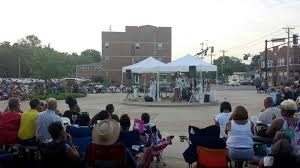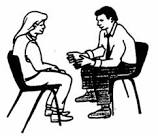Since today is Saturday I taking a break from hospital-related topics and moving to one of the incidents that has been in the news all week. From my title you have already guessed I am talking about the racial tensions in Ferguson Missouri following the shooting a black teenager by a white police officer. Sadly this event has provoked a crisis. The severity of the crisis was made clear when Jay Nixon, Governor of Missouri, brought in the Missouri State Patrol to provide law enforcement instead of allowing that duty to remain with the local police department. His move was well-intentioned, he wanted to end the violence and calm tempers.
Sadly the nation learned as we awoke on Saturday morning that violence and looting had taken place in the early hours before the sun rose. I chose this picture for my post because rather than documenting violence it shows people in the community listening to leadership. It shows the right method for people to use to get the information they need regarding the initial tragedy. My pain in reading what has continued to happen is that the original death and violence has been met with additional violence and personal injury.
My prayer is that citizens in Ferguson can move to non-violent ways of listening and speaking what is in their hearts and on their minds. The events of the past week remind me of events from the 1960’s. History has shown that was a painful time for many cities in our nation. It is not a trend that I want reappear even in one community much less spread to other communities. I invite you to join me in praying for peace!











